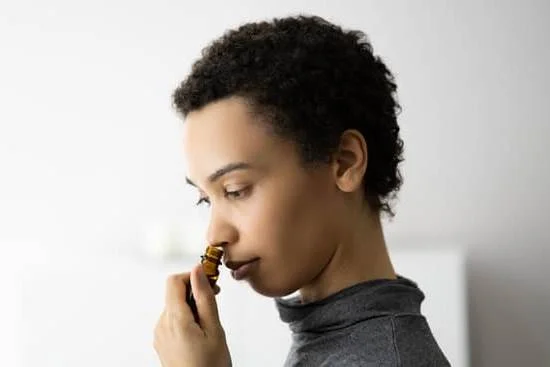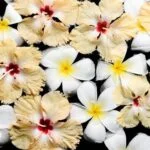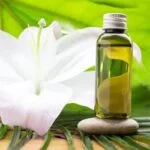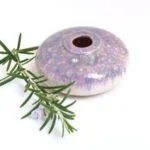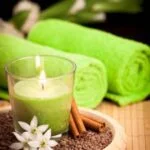Aromatherapy diffusers have gained significant popularity in recent years, as more and more people are recognizing the benefits they provide for overall health and wellness. These devices not only fill your space with pleasant scents but also offer a wide range of advantages that can improve various aspects of your life. By understanding what aromatherapy diffusers are and how they work, you can harness their potential to enhance your daily well-being.
Aromatherapy diffusers are devices designed to disperse essential oils into the air, filling your environment with fragrance. These diffusers come in various forms, including ultrasonic diffusers, nebulizing diffusers, heat diffusers, and evaporative diffusers. Each type operates differently but serves the same purpose – to break down essential oils into smaller molecules and release them into the air for inhalation.
The benefits of using aromatherapy diffusers are vast and wide-ranging. Not only do they create a pleasant ambiance by spreading delightful scents throughout a room, but they can also have positive effects on your physical and mental well-being. Whether it’s relieving stress and anxiety, promoting restful sleep or enhancing focus and concentration, these simple devices have proven to be powerful tools in achieving a better quality of life.
In this article series, we will delve into the world of aromatherapy diffusers to explore their functions, advantages, different types available on the market, as well as specific uses such as stress relief, mood enhancement, sleep improvement, respiratory health support, pest control, and more. Additionally, we will cover important considerations regarding their usage and provide tips on maintenance and cleaning for long-term use.
So, if you’re ready to embrace the aroma-filled journey towards holistic well-being with essential oils and aromatherapy diffusers alike – let’s dive right in.
How Aromatherapy Diffusers Function
Aromatherapy diffusers are devices that release essential oils into the air, allowing individuals to benefit from their therapeutic properties. Understanding how these diffusers function and the science behind them can shed light on their effectiveness and why they have become popular tools for promoting health and wellness.
Evaporative Diffusion
One of the most common types of aromatherapy diffusers is evaporative diffusion. This method involves using a fan or airflow to cause the essential oil to evaporate quickly. The oil molecules are then released into the surrounding air, creating a pleasant aroma. Evaporative diffusers do not require heat or water, making them easy to use and maintain. However, this method may not be as effective in dispersing the oils evenly throughout larger spaces.
Nebulizing Diffusion
Nebulizing diffusion is another method used in aromatherapy diffusers. This type of diffuser utilizes a nebulizer, which breaks down the essential oil into tiny particles through a process called atomization. These micro-particles are released into the air in a fine mist, allowing for better absorption by the body.
Nebulizing diffusers are known for delivering strong concentrations of essential oils, making them particularly beneficial for therapeutic purposes. However, they may be noisier than other types of diffusers due to the need for an air compressor.
(Ultrasonic Diffusion)
Ultrasonic diffusion is another popular technique used in aromatherapy diffusers. This method involves combining water and essential oils in a device that uses ultrasonic vibrations to create a fine mist. The mist is then released into the air where it can be inhaled and provide various benefits. Ultrasonic diffusers are often appreciated for their ability to distribute essential oils more evenly throughout a room while also increasing humidity levels, offering additional advantages for respiratory health.
Understanding how aromatherapy diffusers function is essential in choosing the right type for specific needs and preferences. Whether it’s evaporative diffusion, nebulizing diffusion, or ultrasonic diffusion, each method has its unique advantages and considerations. By exploring the science behind these diffusers, individuals can make informed choices and maximize the benefits to their overall well-being.
Advantages of Aromatherapy Diffusers
Aromatherapy diffusers offer numerous advantages that can positively impact both physical health and emotional well-being. By releasing essential oils into the air, these devices create an aromatic environment that can promote relaxation, boost mood, enhance sleep quality, improve focus and concentration, relieve respiratory issues, and even serve as natural pest control. Let’s explore some of the key advantages of using aromatherapy diffusers for your health and wellness.
One of the primary benefits of aromatherapy diffusers is their ability to promote relaxation and reduce stress. Certain essential oils like lavender, chamomile, and bergamot have calming properties that can help alleviate anxiety and induce a sense of tranquility.
When inhaled through a diffuser, these oils interact with the olfactory system and stimulate the release of neurotransmitters like serotonin and dopamine, which are responsible for regulating mood and emotions. As a result, using an aromatherapy diffuser regularly can create a peaceful ambiance that promotes overall relaxation.
Furthermore, aromatherapy diffusers can be effective tools for boosting mood and enhancing emotional well-being. Essential oils such as citrusy scents (lemon or orange) or floral fragrances (rose or ylang-ylang) have uplifting properties that can positively impact one’s mood. Inhaling these oils through a diffuser can stimulate the brain’s limbic system and trigger the release of endorphins – chemicals known to improve mood and reduce feelings of stress or depression.
In addition to promoting relaxation and boosting mood, aromatherapy diffusers can also contribute to better sleep quality. Essential oils like lavender or vetiver possess sedative qualities that can help calm racing thoughts and prepare the mind for sleep. Diffusing these oils before bedtime creates a soothing environment that promotes restful sleep. Additionally, certain essential oils have antimicrobial properties that may help reduce allergens in the air, providing relief from congestion caused by allergies or colds.
By harnessing the power of essential oils, aromatherapy diffusers can greatly impact our health and well-being. From combating stress and anxiety to enhancing mood, improving sleep quality, and even soothing respiratory issues, these devices offer a holistic approach to wellness. Consider incorporating aromatherapy diffusers into your daily routine to experience the numerous benefits they have to offer.
Different Types of Aromatherapy Diffusers
Aromatherapy diffusers come in various types, each offering unique features and benefits. Understanding the different types of aromatherapy diffusers can help you make an informed decision when choosing the right one for your needs.
- Nebulizing Diffusers: These diffusers use a cold air pump or compressed air to break down essential oils into small particles that are then released into the air as a fine mist. Nebulizing diffusers do not require water or heat, making them ideal for preserving the therapeutic properties of essential oils.
- Ultrasonic Diffusers: Ultrasonic diffusers use ultrasonic vibrations to create a fine mist of water and essential oils that is dispersed into the air. These diffusers are easy to use and often double as humidifiers, providing moisture to the surrounding environment.
- Heat Diffusers: Heat diffusers use heat to vaporize essential oils, releasing their aroma into the air. These diffusers can be in the form of electric heat plates, candle burners, or simply placing drops of essential oil on a hot surface.
- Evaporative Diffuser: Evaporative diffusers work by allowing air to naturally evaporate essential oils placed on a material such as a pad or reed sticks. The oil slowly releases its aroma into the surrounding area.
When choosing an aromatherapy diffuser, consider factors such as ease of use, maintenance requirements, noise level, coverage area, and personal preferences regarding scent intensity and duration. It’s also important to note that certain essential oils may not be suitable for certain types of diffusers due to their viscosity or chemical composition.
| Type | Description | Advantages |
|---|---|---|
| Nebulizing Diffuser | Uses cold air pump or compressed air to break down essential oils into small particles, no water or heat required | Preserves therapeutic properties of essential oils |
| Ultrasonic Diffuser | Uses ultrasonic vibrations to create a fine mist of water and essential oils | Doubles as a humidifier, easy to use |
| Heat Diffuser | Uses heat to vaporize essential oils | Simpler design, can be more affordable |
| Evaporative Diffuser | Air naturally evaporates essential oils placed on a material such as a pad or reed sticks | No heat or water needed, portable option |
Aromatherapy Diffusers and Stress Relief
Aromatherapy Diffusers: A Stress-Relief Solution
In today’s fast-paced and stressful world, finding ways to relax and unwind is essential for maintaining a healthy mind and body. Aromatherapy diffusers have become increasingly popular as a tool for stress relief, thanks to their ability to create a calming environment with the use of essential oils. This section will delve into the relaxing effects of aromatherapy diffusers and how they can effectively reduce stress levels.
The Role of Essential Oils in Stress Relief
Essential oils play a significant role in the stress-relieving effects of aromatherapy diffusers. These oils are extracted from various plants, flowers, and herbs, each possessing unique properties that can help ease stress and promote relaxation. Popular essential oils used for stress relief include lavender, chamomile, bergamot, and ylang-ylang. When these oils are dispersed into the air through an aromatherapy diffuser, they release aromatic molecules that stimulate the olfactory system in our brains.
Calming Effects on the Nervous System
The olfactory system is directly connected to the limbic system in our brains, which controls emotions and memory. As we inhale the aroma emitted by an aromatherapy diffuser, these aromatic molecules interact with our brain’s receptors, producing a calming effect on our nervous system. Research has shown that certain scents like lavender have been linked to reduced heart rate and blood pressure levels, indicating a relaxation response in the body.
Moreover, using an aromatherapy diffuser also creates a soothing atmosphere through soft light projections and gentle sounds if equipped with additional features. The combination of pleasant scents along with visually appealing elements helps create an overall relaxing ambiance that aids in reducing stress levels effectively.
Optimizing Stress Relief Techniques
To maximize the stress-relieving benefits of aromatherapy diffusers, it is important to incorporate other relaxation techniques alongside their use. Practices such as deep breathing exercises, meditation, and gentle yoga can complement the calming effects of essential oils, creating a comprehensive approach to stress relief. Combined efforts will help individuals achieve a deeper state of relaxation, thereby improving overall well-being.
Boosting Mood and Enhancing Emotional Well-being with Aromatherapy Diffusers
Aromatherapy diffusers are not only used for their pleasant scents, but they also have the ability to boost mood and enhance emotional well-being. The power of aromatic compounds found in essential oils can have a profound effect on our emotions and overall mental state. This section will explore how aromatherapy diffusers can be used as tools to promote emotional wellness.
Aromatherapy and Mood Enhancement
One of the main benefits of using aromatherapy diffusers is their ability to positively impact our mood. Certain essential oils, such as lavender, bergamot, and ylang-ylang, have been shown to promote relaxation and reduce feelings of anxiety and stress. By inhaling these soothing scents through a diffuser, we can create a calming environment that helps us unwind and elevate our mood.
In addition to promoting relaxation, aromatherapy diffusers can also be used to uplift our spirits. Citrus essential oils like lemon or orange are known for their energizing properties and can help combat fatigue or feelings of low energy. Diffusing these invigorating scents in the morning or during midday slumps can provide a natural pick-me-up and help improve focus and productivity.
The Link Between Aromatherapy Diffusers and Emotional Well-being
Our emotions play a significant role in our overall well-being, and aromatherapy diffusers can be an effective tool for supporting emotional balance. Essential oils like chamomile, jasmine, or rose are known for their mood-enhancing properties. These floral scents are often used in aromatherapy practices specifically aimed at reducing stress, enhancing relaxation, and promoting positive emotions.
By incorporating aromatherapy diffusers into our daily routines, we allow these therapeutic scents to fill the air around us, stimulating our olfactory system and triggering various reactions in our brain. This process can help relieve symptoms of depression and anxiety, improve our mental state, and create a more positive and nurturing environment for emotional well-being.
Aromatherapy Diffusers for a Restful Sleep
One of the key benefits of aromatherapy diffusers is their ability to promote a restful sleep. Many people struggle with sleep issues such as insomnia or restless nights, and turning to essential oils through aromatherapy diffusers can help improve the quality of their sleep.
Essential oils have unique properties that can assist in achieving better sleep. For example, lavender oil is known for its calming and soothing effects on the mind and body, making it a popular choice for sleep support. Other essential oils like chamomile, ylang-ylang, and bergamot can also contribute to relaxation and stress reduction, creating an ideal environment for sleep.
When used in aromatherapy diffusers, these essential oils are dispersed into the air in fine mist form. The inhalation of these misted oils allows them to be easily absorbed by the body through the respiratory system. As the scent travels through the nasal passages, it stimulates the olfactory receptors in the brain, triggering various physiological responses that promote relaxation and sleep.
So how do aromatherapy diffusers enhance the sleep experience? First and foremost, they create a calming atmosphere by filling the room with pleasant scents that help relax both mind and body. This sensory experience can signal to your brain that it’s time to wind down and prepare for rest. Additionally, some research suggests that certain essential oils may directly affect brain waves associated with promoting deep sleep.
To fully embrace the benefits of aromatherapy diffusers for better sleep quality, it’s important to consider factors such as timing and oil selection. Using your diffuser about 30 minutes before bedtime can provide enough time for your senses to adjust and set a tranquil mood in your bedroom. Experimenting with different essential oils can also help you find what works best for you individually, as everyone’s response to aromatherapy may vary.
Enhancing Focus and Concentration
Aromatherapy diffusers are not only beneficial for relaxation and promoting better sleep, but they can also be used as effective tools to enhance focus and concentration. The use of essential oils in aromatherapy diffusers has been known to have stimulating and cognitive-enhancing effects on the brain, making them a valuable aid for boosting productivity and mental clarity.
One of the ways in which aromatherapy diffusers can enhance focus and concentration is through the use of specific essential oils that have been found to have these properties. Certain scents, such as rosemary, peppermint, and lemon, are known to stimulate the brain and improve cognitive function.
These scents can help increase alertness, improve memory retention, and boost overall mental performance. By using an aromatherapy diffuser with these essential oils in your workspace or study area, you can create an environment that promotes mental sharpness and productivity.
In addition to using specific scents, the act of inhaling the aroma emitted by an aromatherapy diffuser itself can have a positive impact on focus and concentration. When you breathe in the aromatic molecules from essential oils, they travel through your olfactory system and directly affect the limbic system in your brain which is responsible for emotions, memory, and cognition.
This direct interaction with the limbic system can help stimulate neural activity, increase blood flow to the brain, and improve cognitive function.
To maximize the benefits of using aromatherapy diffusers for focus and concentration, it is important to choose high-quality essential oils that are known for their stimulating properties. It is also important to set up your diffuser in a well-ventilated area where you spend most of your time working or studying.
Experiment with different scents to find what works best for you and adjust the intensity of diffusion based on personal preference. By incorporating aromatherapy diffusers into your daily routine as productivity tools, you can create an optimal environment for enhanced focus, concentration, and mental performance.
Aromatherapy Diffusers and Respiratory Health
Aromatherapy diffusers have gained popularity not only for their pleasant scents but also for their potential health benefits. One area where these diffusers can be particularly beneficial is respiratory health. By using essential oils known for their anti-inflammatory and antimicrobial properties, aromatherapy diffusers can help relieve allergies and cold symptoms, promoting better respiratory health overall.
Allergies can cause a variety of uncomfortable symptoms such as sneezing, coughing, nasal congestion, and itchy eyes. Aromatherapy diffusers can provide relief by dispersing essential oils that have been specifically chosen for their decongestant and anti-allergenic properties. For example, oils like eucalyptus, peppermint, lavender, and tea tree oil are often used to reduce inflammation in the airways and allow for easier breathing.
When it comes to colds, aromatherapy diffusers can play a similar role in alleviating symptoms. Essential oils such as eucalyptus and tea tree oil have antimicrobial properties that can help fight off viral or bacterial infections in the respiratory system. Inhaling these oils through a diffuser can help clear nasal passages, soothe coughs, and reduce congestion.
Using an aromatherapy diffuser for respiratory health is both safe and effective. However, it is important to keep in mind that everyone’s sensitivity to essential oils may vary. It is recommended to start with low concentrations of essential oil blends and gradually increase as needed. Additionally, consult with a healthcare professional before using essential oils if you have any pre-existing respiratory conditions or if you are pregnant or breastfeeding.
Using Aromatherapy Diffusers for Natural Pest Control
Aromatherapy diffusers not only offer a plethora of benefits for overall health and wellness, but they can also be utilized as a natural and effective method for pest control. By harnessing the power of essential oils, these diffusers can help create bug-free spaces while avoiding the use of harmful chemicals often found in traditional pest control methods.
When it comes to using aromatherapy diffusers for natural pest control, certain essential oils have proven to be particularly effective. Oils such as citronella, peppermint, lavender, eucalyptus, and tea tree are known for their ability to repel insects like mosquitoes, flies, ants, and spiders. These oils contain properties that bugs find unpleasant or overwhelming, which discourages them from entering the space.
To make the most out of aromatherapy diffusers for pest control purposes, it is important to strategically place them in areas where bugs are commonly found or where they enter the space. For instance, placing a diffuser near windows or doors can prevent bugs from entering the house. Additionally, using multiple diffusers across larger areas or outdoor spaces can create a more comprehensive barrier against pests.
| Essential Oil | Common Insects Repelled |
|---|---|
| Citronella | Mosquitoes, flies |
| Peppermint | Ants, spiders |
| Lavender | Moths |
| Eucalyptus | Mosquitoes, flies |
| Tea Tree | Flies, ants, spiders |
By incorporating aromatherapy diffusers into your pest control routine, you can enjoy bug-free spaces without compromising your health or the environment. However, it is important to note that while essential oils are generally safe for humans and pets, some individuals may have sensitivities or allergies to certain oils. It is advisable to test the oils in small quantities and seek professional advice if any adverse reactions occur.
Understanding the Cautions and Considerations for Aromatherapy Diffuser Usage
Aromatherapy diffusers offer a wide range of benefits for health and wellness. However, it is important to understand the cautions and considerations for their usage to ensure safe and effective use.
One important consideration when using aromatherapy diffusers is the choice of essential oils. It is crucial to use high-quality, pure essential oils that are specifically intended for aromatherapy purposes. Avoid synthetic fragrances or oils with additives, as they may not have the same therapeutic effects and can even be harmful when inhaled.
Additionally, some essential oils can cause skin irritation or allergic reactions in certain individuals. Before using any new essential oil, it is recommended to perform a patch test on a small area of skin to check for any adverse reactions. It is also advisable to consult with a healthcare professional if you have any existing medical conditions or are pregnant or nursing before using certain essential oils.
Another consideration for diffuser usage is the duration and frequency of use. While aromatherapy diffusers are generally safe when used properly, it’s important not to overdo it. It is recommended to follow the instructions provided with your specific diffuser model and use the diffuser in moderation. Excessive exposure to strong concentrations of essential oils may lead to headaches, dizziness, or other unpleasant side effects.
Furthermore, it is important to keep in mind that aromatherapy diffusers should not be left unattended while in use. Like any electrical device, there is always a risk of malfunction or accidents if left unsupervised. Always exercise caution and ensure that the area around the diffuser is well-ventilated.
By being mindful of these cautions and considerations, you can safely enjoy all the benefits that aromatherapy diffusers have to offer. Remember to do your research, choose high-quality essential oils, and use them responsibly according to manufacturer instructions for optimal results.
Maintaining and Cleaning Aromatherapy Diffusers
Maintaining and cleaning your aromatherapy diffuser is essential to ensure its longevity and continued effectiveness in dispersing essential oils. By following a few simple tips, you can keep your diffuser running smoothly and maintain its optimal performance.
One of the most important things to remember when maintaining your aromatherapy diffuser is to regularly clean it. Over time, essential oil residue can build up inside the diffuser, which can affect its functionality and the quality of the scent it disperses. To clean your diffuser, start by unplugging it and emptying any remaining water and oil from the reservoir.
Next, use a soft cloth or cotton swab dipped in rubbing alcohol or white vinegar to carefully wipe down the inside of the reservoir as well as any other accessible parts of the diffuser. This will help remove any residue or buildup that may have accumulated over time. Finally, rinse out the reservoir with clean water and dry it thoroughly before reassembling your diffuser.
In addition to regular cleaning, it’s also important to maintain your aromatherapy diffuser by replacing worn-out parts when needed. If you notice that your diffuser is not functioning properly, such as weak mist output or a malfunctioning timer, check for any damaged or worn-out parts that may need to be replaced.
Common parts that may need replacing include atomizer discs, O-rings, and nebulizer tubes. Consult your diffuser’s user manual or contact the manufacturer for guidance on sourcing and replacing these parts.
By taking proper care of your aromatherapy diffuser through regular cleaning and maintenance, you can enjoy its benefits for years to come. Not only will this help ensure efficient diffusion of essential oils for maximum therapeutic effects, but it will also prolong the lifespan of your diffuser itself. With just a little effort in maintaining and cleaning your aromatherapy diffuser, you can continue creating a soothing ambiance in your living space while promoting health and well-being.
Conclusion
Aromatherapy diffusers are not only a trendy and stylish addition to your home decor but also have numerous benefits for your overall health and well-being. From stress relief to better sleep quality, these devices can greatly enhance your physical and emotional state. By incorporating aromatherapy diffusers into your daily routine, you can create a calming and uplifting environment that promotes relaxation and rejuvenation.
One of the key advantages of aromatherapy diffusers is their ability to promote relaxation and reduce stress. The use of essential oils in diffusers can create an atmosphere that helps calm the mind and body, relieving anxiety and tension. The soothing scents released by the diffuser can relax your nervous system, promoting a sense of calmness and serenity throughout your day.
In addition to stress relief, aromatherapy diffusers can also uplift your mood and enhance emotional well-being. Certain essential oils have been found to have mood-boosting properties, such as lavender or bergamot oil. By using these oils in your diffuser, you can create an uplifting atmosphere that positively impacts your emotions. Whether you are feeling down or simply want to enhance your mood, aromatherapy diffusers offer a natural and effective solution.
Overall, embracing the use of aromatherapy diffusers is a holistic approach to achieving well-being in all aspects of your life. These devices provide numerous benefits for both physical and emotional health, from relieving allergies to promoting relaxation. By incorporating aromatherapy into your daily routine through the use of diffusers, you can create a nurturing environment that supports optimal health and wellness.
So why not embrace the aromatherapy diffuser lifestyle today? Start enjoying the many benefits it has to offer as you embark on a journey towards holistic well-being.
Frequently Asked Questions
What are the benefits of aromatherapy diffusers?
Aromatherapy diffusers offer several benefits for both physical and mental well-being. One of the primary advantages is their ability to enhance mood and promote relaxation. By dispersing essential oils into the air, diffusers create a calming ambiance that can help relieve stress, anxiety, and even improve sleep quality.
Many essential oils used in aromatherapy also contain antibacterial and antiviral properties, which may help purify the air by reducing airborne pathogens. Additionally, certain scents can improve concentration, boost energy levels, or uplift spirits when used in a diffuser.
What is the downside of diffusers?
Despite their numerous benefits, there are some downsides to using diffusers as well. One of the major concerns is the potential for allergies or sensitivities to certain essential oils. Some people may experience adverse reactions such as skin irritation or respiratory issues when exposed to specific scents through diffusion.
It’s crucial to be aware of any allergies or sensitivities you may have before using a diffuser and choose essential oils accordingly. Another downside is often related to the noise level produced by some diffuser models during operation. While this may not bother some individuals, for others it could be distracting or disruptive.
Are diffusers good for your lungs?
Diffusers generally do not pose significant risks to lung health when used appropriately and in moderation. However, it’s important to consider a few factors related to lung health while using one. Firstly, limit your exposure time by following the recommended guidelines provided with your specific diffuser model and the instructions of the essential oil manufacturer.
Overexposure can potentially cause respiratory irritations or trigger asthma-like symptoms in sensitive individuals. Secondly, ensure proper ventilation in the room where you use a diffuser to prevent oil droplets from accumulating in high concentrations which might pose temporary discomfort or irritation if breathed in directly for prolonged periods of time. Lastly, always use high-quality pure essential oils specifically formulated for diffusion purposes as synthetic fragrances may contain chemicals that could be harmful when inhaled.

Are you looking for a natural way to improve your health and wellbeing?
If so, aromatherapy may be the answer for you.

